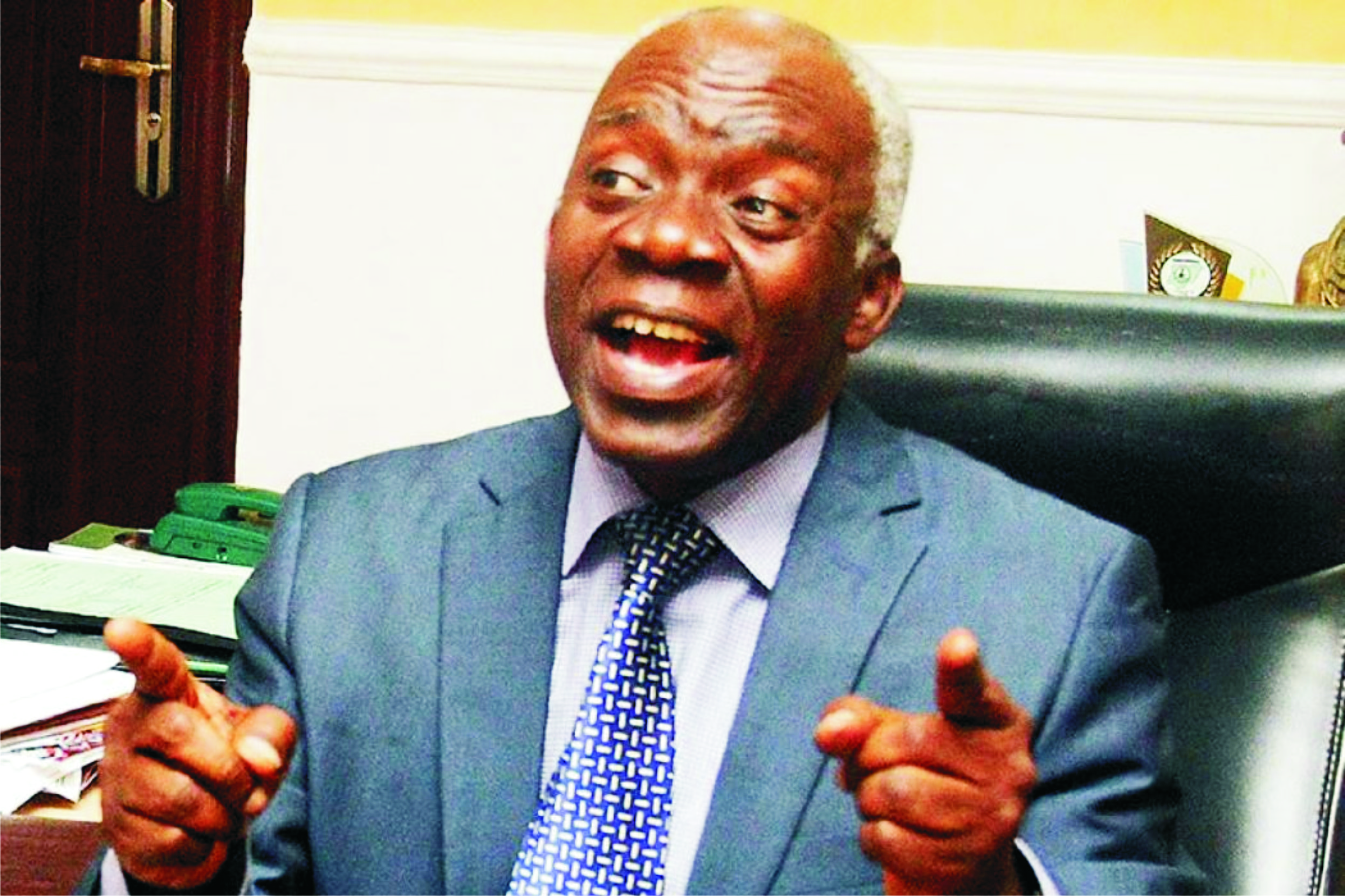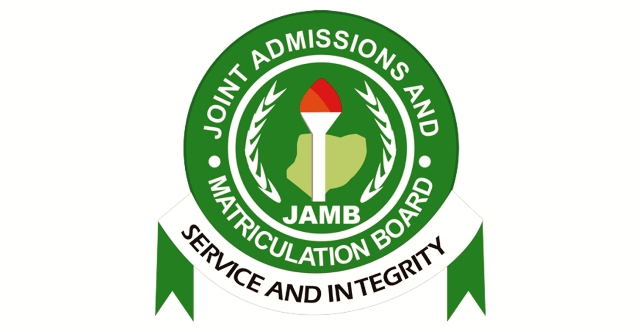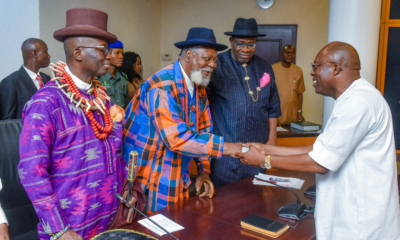News
NEPAD Pledges Increased Food Productivity In Rivers
The New Partnership for Africa’s Development (NEPAD) has expressed its commitment to increase food productivity by revitalising the agricultural sector in Rivers State.
SA to the Governor and State Coordinator of NEPAD, Dr Tex Wariboko, who stated this in a chat with newsmen, said NEPAD is working on involving all sectors of society in farming with a view to implementing its agricultural action plan by engaging necessary skills and expertise in food production.
Dr Wariboko explained that to bridge the unemployment gap youths would be encouraged to engage in agriculture and stressed the need to train a new generation of farmers by teaching young people new methods and ways of farming thus creating viable means of generating revenue.
The NEPAD Coordinator said the body is currently working on its action plans in Infrastructural Development, Capacity Building for Small and Medium Scale Enterprises (SMEs), Agriculture, Education and Information and Communication Technology (ICT), and creating partnerships and synergies to involve all sectors of society in raising the living standards of the people.
He disclosed that NEPAD is also dealing with climate change and pollution as captured in its environmental action plan, stressing that the effects of climate change is impacting negatively on the agricultural sector. Calling on the Federal Government to address the negative impact of oil exploration in the Niger Delta region, Dr Wariboko said “because we earn for the whole country and because we bear the brunt of the consequences of oil exploration, the Federal Government needs to pay special attention to the region,” and “provide incentives to discourage the ex-militants from returning to the creeks”.
He revealed that NEPAD will establish integrated farms in the 3 senatorial districts of the State and engage about 15,000 youths in agriculture, adding that his agency is partnering with the State Social Rehabilitation Committee to reintegrate and rehabilitate the ex-militants.
“NEPAD’s agenda,” he said “is the grassroots,” and disclosed that the body aims to avert political interference by involving all stakeholders in its programmes.
He enjoined the citizens to stand up for their rights and insist on the kind of leadership they desire by casting and ensuring their votes count in the 2011 elections.
News
Monarch Fingers Political Class On Community’s Socio-Economic Woes

Paramount Ruler of Owei-wari Community of Biseni Clan in the Yenagoa Local Government Area of Bayelsa State, HRH Elijah Opia Churchman, has alleged that some members of the political class in the clan were against the socio-economic prosperity and development of his community.
The royal father stated this recently at the State Secretariat complex, Yenagoa, the state capital, during an interview with Journalists shortly after his exit from the Federal High Court, Yenagoa, where he said he was currently pursuing a case the community instituted against some alleged anti-development agents.
He said while the Owei-wari Community used to be a compound in one of the communities of the kingdom, some years ago as landlords and host of an oil firm operating in the area, the compound having been overwhelmed by the constant outcry of marginalization by its people, moved for recognition as an autonomous community in the clan.
The monarch, who also bared his mind on the intentions of a group called “the Progressive Minded forum of Biseni clan”, said the group has been a strong advocate of the creation of more clans for the people of Biseni in which his community would also be a clan.
He reaffirmed his commitment to the continued pursuit of peace, progress and development of his community and the entire clan, noting, however, that for years now some members of the political class in the area have conspicuously been working against the realization of the dreams and yearnings of the Owei-wari Community.
“We’re working assiduously to see that at least six clans are created in the current Biseni clan so that Owei-wari Community with over 13 settlements becomes one of them, but some politicians and a few of their followers in the clan are working against us for no obvious reasons.
“We’ve advised the King of Biseni Clan that his scope of domain should extend to all Biseni communities and lands from the Orashi River, River Nun, through River Niger so that he can oversee the entire six clans that we plan to create in the kingdom.
“In our thinking as it were, now that we’ve Okordia/Biseni/Zarama in Yenagoa Local Government Area for the state House of Assembly constituency, when more clans are created in Biseni in which communities like Egbebiri, Tein, Toboru, Akpede and Owei-wari would become clans, then as a kingdom, whenever it’s our turn to produce the Assembly member we can then rotate it amongst the clans in Biseni Kingdom and not as it were presently”, the royal father said.
He continued that, “We think that it’s going to be of political, social and economic advantage to us as a clan, but some members of the political class were bent on undoing Owei-wari Community and the clan in general.
“As a community, recently we’ve written to the Nigerian Agip Oil Company (NAOC) to develop all the satellite villages and fishing camps to modern cities in Owei-wari and make them economically viable.
“So, by our expectations, some are to have the status of academic cities, industrial cities, etc.”
By: Ariwera Ibibo-Howells, Yenagoa
News
You Failed Nigerians, Falana Slams Power Minister

Human rights lawyer, Femi Falana, SAN, has passed a vote of ‘no confidence’ in the Federal Government, saying that the Minister of Power, Adebayo Adelabu, has failed Nigerians.
Falana was reacting to Adelabu’s appearance before the Senate to defend the increase in the electricity tariff and what Nigerians would pay on Monday.
The rights activists also claimed that the move is a policy imposed on the Nigerian government by the International Monetary Funds (IMF) and the World Bank.
Speaking on the Channels TV show on Monday night, Falana said, “The Minister of Power, Mr Adebayo Adelabu has failed to address the question of the illegality of the tariffs.
“Section 116 of the Electricity Act 2023 provides that before an increase can approved and announced, there has to be a public hearing conducted based on the request of the DISCOS to have an increase in the electricity tariffs. That was not done.
“Secondly, neither the minister nor the Nigeria Electricity Regulatory Commission has explained why the impunity that characterised the increase can be allowed.”
Falana also expressed worry over what he described as impunity on the part of the Federal Government and electricity regulatory commission.
““I have already given a notice to the commission because these guys are running Nigeria based on impunity and we can not continue like this. Whence a country claims to operate under the rule of law, all actions of the government, and all actions of individuals must comply with the provisions of relevant laws.
“Secondly, the increase was anchored on the directives of the commission that customers in Band A will have an uninterrupted electricity supply for at least 20 hours a day. That directive has been violated daily. So, on what basis can you justify the increase in the electricity tariffs”, Falana queried.
The human rights lawyer alleged that the Nigerian government is heeding an instruction given to her by the Bretton Wood institutions.
He alleged, “The Honourable Minister of Power is acting the script of the IMF and the World Bank.
“Those two agencies insisted and they continue to insist that the government of Nigeria must remove all subsidies. Fuel subsidy, electricity subsidy and what have you; all social services must be commercialised and priced beyond the reach of the majority of Nigerians.
“So, the government cannot afford to protect the interest of Nigerians where you are implementing the neoliberal policies of the Bretton Wood institutions.”
The Senior Advocate of Nigeria accused Western countries led by the United States of America of double standards.
According to him, they subsidize agriculture, energy, and fuel and offer grants and loans to indigent students while they advise the Nigerian government against doing the same for its citizens.
Following the outrage that greeted the announcement of the tariff increase, Adelabu explained that the action would not affect everyone using electricity as only Band A customers who get about 20 hours of electricity are affected by the hike.
Falana, however, insisted that neither the minister nor the National Electricity Regulatory Commission (NERC) has justified the tariff increase.
The senior lawyer said that Nigerian law gives no room for discrimination against customers by grading them in different bands.
He insisted that the government cannot ask Nigerians to pay differently for the same product even when what has been consistently served to them is darkness.
Following the outrage over the hike, Adelabu on Monday appeared at a one-day investigative hearing on the need to halt the increase in electricity tariff by eleven successor electricity distribution companies amid the biting economic situation in Nigeria.
However, Falana said that nothing will come out of the probe by the Senate.
He advised that the matter has to be taken to court so that the minister and the Attorney General of the Federation can defend the move.
News
1.4m UTME Candidates Scored Below 200 -JAMB

The Joint Admissions and Matriculation Board (JAMB) on Monday, released the results of the 2024 Unified Tertiary Matriculation Examination, showing that 1,402,490 candidates out of 1,842,464 failed to score 200 out of 400 marks.
The number of candidates who failed to score half of the possible marks represents 78 per cent of the candidates whose results were released by JAMB.
Giving a breakdown of the results of the 1,842,464 candidates released, the board’s Registrar, Prof. Ishaq Oloyede, noted that, “8,401 candidates scored 300 and above; 77,070 scored 250 and above; 439,974 scored 200 and above while 1,402,490 scored below 200.”
On naming the top scorers for the 2024 UTME, Oloyede said, “It is common knowledge that the Board has, at various times restated its unwillingness to publish the names of its best-performing candidates, as it considers its UTME as only a ranking examination on account of the other parameters that would constitute what would later be considered the minimum admissible score for candidates seeking admission to tertiary institutions.
“Similarly, because of the different variables adopted by respective institutions, it might be downright impossible to arrive at a single or all-encompassing set of parameters for generating a list of candidates with the highest admissible score as gaining admission remains the ultimate goal. Hence, it might be unrealistic or presumptive to say a particular candidate is the highest scorer given the fact that such a candidate may, in the final analysis, not even be admitted.
“However, owing to public demand and to avoid a repeat of the Mmesoma saga as well as provide a guide for those, who may want to award prizes to this set of high-performing candidates, the Board appeals to all concerned to always verify claims by candidates before offering such awards.”
Oloyede also noted that the results of 64,624 out of the 1,904,189, who sat the examination, were withheld by the board and would be subject to investigation.
He noted that though a total of 1,989,668 registered, a total of 80,810 candidates were absent.
“For the 2024 UTME, 1,989,668 candidates registered including those who registered at foreign centres. The Direct Entry registration is still ongoing.
“Out of a total of 1,989,668 registered candidates, 80,810 were absent. A total of 1,904,189 sat the UTME within the six days of the examination.
“The Board is today releasing the results of 1,842,464 candidates. 64,624 results are under investigation for verification, procedural investigation of candidates, Centre-based investigation and alleged examination misconduct”, he said.
Oloyede also said the Board, at the moment, conducts examination in nine foreign centres namely: Abidjan, Ivory Coast; Addis Ababa, Ethiopia; Buea, Cameroon; Cotonou, Republic of Benin; London, United Kingdom; Jeddah, Saudi Arabia; and Johannesburg, South Africa.
“The essence of this foreign component of the examination is to market our institutions to the outside world as well as ensuring that our universities reflect the universality of academic traditions, among others. The Board is, currently, fine-tuning arrangements for the conduct of the 2024 UTME in these foreign centres,” he explained.
-
Rivers17 hours ago
Youths Task FG On Oil Exploration Resumption In Ogoniland
-

 Rivers7 hours ago
Rivers7 hours agoYouths Charge FG On Oil Exploration Resumption In Ogoniland
-

 Featured17 hours ago
Featured17 hours agoThey’ve Rebuffed Reconciliation Despite Peace Efforts – Gov Fubara …Says Rivers Assembly Members Don’t Exist As Lawmakers …Accuses Adangor of Sabotaging State, RSG
-
Health8 hours ago
RSU To Commence Entrepreneurship School
-
Rivers17 hours ago
Christ Embassy Lays Foundation For Tuition Free School In Rivers
-

 Rivers7 hours ago
Rivers7 hours agoChrist Embassy Lays Foundation For Tuition- Free School In Rivers
-

 Sports8 hours ago
Sports8 hours agoCorona, Others Shine At Inter-School Swimming
-

 Business8 hours ago
Business8 hours agoBrokers Bemoan Network Failures At Ports

